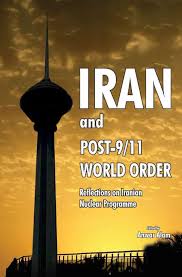
Introduction
The Iranian nuclear program remains a critical issue in international relations, drawing significant attention from world powers due to its potential implications for regional and global security. The pursuit of nuclear technology by Iran has raised concerns about the potential development of nuclear weapons, prompting negotiations and sanctions aimed at limiting this program. Understanding the current state of Iran’s nuclear ambitions is crucial for anticipating geopolitical shifts in the Middle East and beyond.
Recent Developments
As of late 2023, Iran has continued to enrich uranium at levels that exceed the limits set by the Joint Comprehensive Plan of Action (JCPOA), a 2015 agreement aimed at curbing its nuclear ambitions in exchange for sanctions relief. New reports suggest that Iran has amassed a significant stockpile of enriched uranium, further complicating diplomatic efforts. This escalation occurred amid stalled negotiations, as attempts to revive the JCPOA faced numerous roadblocks, particularly concerning sanctions relief and Iran’s regional activities.
In September 2023, the International Atomic Energy Agency (IAEA) reported an increase in the uranium stockpile enriched to 60%, a level that is just short of weapons-grade material. This development has reignited fears among Western nations, particularly the United States and Israel, about Iran’s intentions. In response, the U.S. reimposed some economic sanctions, leading to heightened tensions.
Global Response
The international community has expressed concerns over Iran’s nuclear advancements. In October 2023, a summit attended by leaders from the United States, France, Germany, and the United Kingdom called for renewed negotiations and stricter measures to ensure Iran does not acquire nuclear weapons capability. Diplomats have emphasized the need for a unified approach to bring Iran back to the negotiating table.
Meanwhile, Iran has maintained that its nuclear program is peaceful and aimed at energy independence. Iranian officials suggest that they are open to dialogue but insist that sanctions must first be lifted for meaningful discussions to resume. The ongoing geopolitical tensions have raised questions about the stability of the region and the potential consequences of a nuclear-armed Iran.
Conclusion
The future of the Iranian nuclear program and the associated diplomatic efforts are crucial for regional stability and international security. As negotiations remain stagnant and tensions escalate, the world watches closely. The impact of Iran’s nuclear ambitions may not only reshape Middle Eastern geopolitics but also influence global nuclear non-proliferation efforts. Observers foresee the possibility of renewed conflict if a diplomatic resolution is not reached, highlighting the urgent need for continued dialogue and engagement across the international community.



